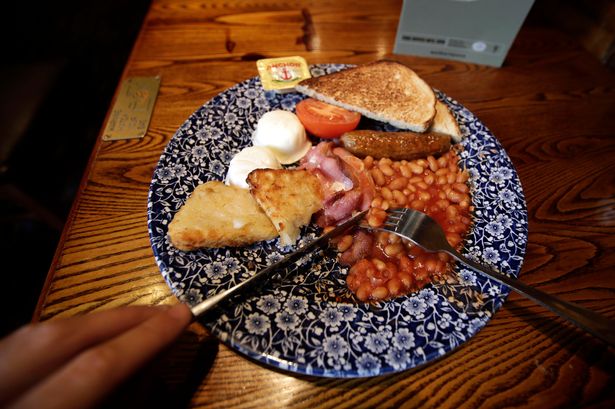The pub chain has explained the reason behind the moveSteven Smith Content Editor, Steve Graves Executive Editor Digital and Nicholas Dawson
12:41, 19 Oct 2025
 A full English cooked breakfast inside a JD Wetherspoon Plc pub(Image: Bloomberg via Getty Images)
A full English cooked breakfast inside a JD Wetherspoon Plc pub(Image: Bloomberg via Getty Images)
The Government has reacted to JD Wetherspoon’s decision to modify its cash payment policies. In November 2024, the pub chain chose to stop accepting Scottish £20 and £50 notes due to concerns about “criminal gangs” circulating counterfeit currency.
Liberal Democrat MP Angus MacDonald questioned the Government about any discussions it had with Wetherspoons regarding “their policy on accepting Scottish banknotes in their premises in England”. Treasury minister Lucy Rigby provided the Government’s response.
She said: “There is no legal requirement for businesses to accept specific forms of payment.
“Each business decides which payment methods to accept based on factors including cost and customer needs and preferences.”
She further clarified that the Government has “no plans” to change the legislation on this issue. However, she did point out some recent changes in the law related to cash availability.
Ms Rigby explained: “In recognition that millions of people continue to use cash, the Financial Services and Markets Act 2023 introduced safeguards to protect the public’s access to cash.”, reports the Mirror.
This legislation grants new powers to the Bank of England to promote wholesale cash distribution. The minister continued to explain how the cash system operates.
She said: “The UK is unusual in allowing several commercial banks to issue their own banknotes.
“As well as Bank of England issued notes, authorised banks in Scotland and Northern Ireland issue banknotes in those jurisdictions.
“However, it remains the individual retailer’s choice whether to accept or decline any form of payment, including cash or card, based on their consideration of factors such as customer preference and cost.”
What prompted Wetherspoon to alter its cash payment rules?
Explaining the decision to cease accepting Scottish banknotes, Wetherspoons spokesperson Eddie Gershon said: “We were notified by the Bank of England last October that a large number of fake Scottish £20 notes were being put into circulation by organised crime gangs.
“Advice was given as to how to identify them – but with a warning not to accept if in doubt.
“This warning, coupled with an increase in the receipt of fake notes by pubs, led to a decision in late November last year not to accept Scottish £20 notes.
“This does not apply in Scotland and certain towns and cities with close links to Scotland.
“Scottish £50 notes are not accepted for the same reason.We will continue to keep the decision under review.”

